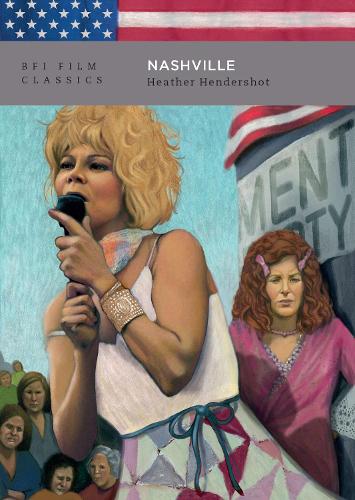
Nashville
(Paperback)
Publishing Details
Nashville
By (Author) Heather Hendershot
Bloomsbury Publishing PLC
BFI Publishing
13th November 2025
United Kingdom
Classifications
Tertiary Education
Non Fiction
Film guides and reviews
Individual film directors, film-makers
Physical Properties
Paperback
104
Width 135mm, Height 190mm
Description
Robert Altmans Nashville (1975) is simultaneously an intimate film about interpersonal connection and disconnection, and a sprawling, meandering portrait of American societal exhaustion in the wake of Vietnam, Watergate and a spate of political assassinations. Despite its pessimistic, satirical viewpoint, the film suggests a carefully guarded optimism: life may be a one-way street, but one has no choice but to keep a goin.
Heather Hendershot places Nashville in the context of the New Hollywood of the 1970s, which offered a post-censorship anti-hero, the perennial loser. Embracing the new pessimism, Altmans work fits with those of contemporaries such as Martin Scorsese and Peter Bogdanovich, but it also stands apart for its innovative sound design, improvisatory drive, and loose genre commitments.
Through a close reading of the five days over which the film takes place, Hendershot unpacks both its political dynamics and the characters interrelationships and motivations. She highlights Nashvilles criticism of the suffering of its female characters, an engagement that springs from Joan Tewkesburys screenplay, Altmans sensitivity to gendered exploitation (here, if not in all of his pictures), and the role the performers themselves played by improvising and scripting some of their own material.
Author Bio
Heather Hendershot is Cardiss Collins Professor of Communication Studies and Journalism at Northwestern University, USA. She has authored numerous books, including Open to Debate: How William F. Buckley Put Liberal America on the Firing Line (2016) and When the News Broke: Chicago 1968 and the Polarizing of America (2022), as well essays on films ranging from The Creature from the Black Lagoon to Dog Day Afternoon.
